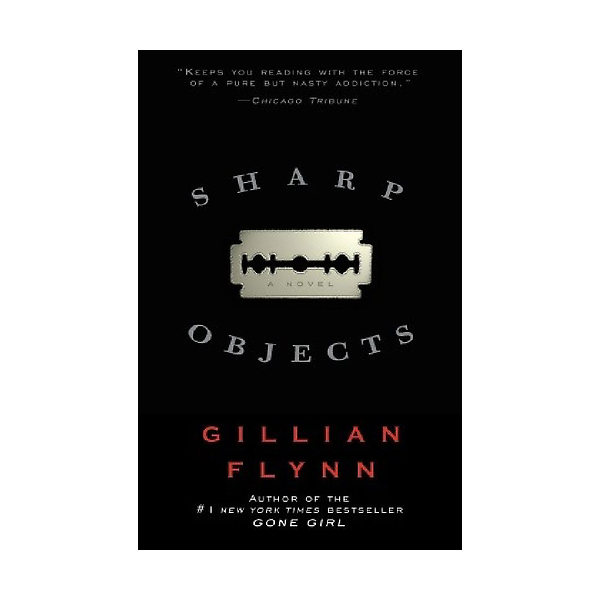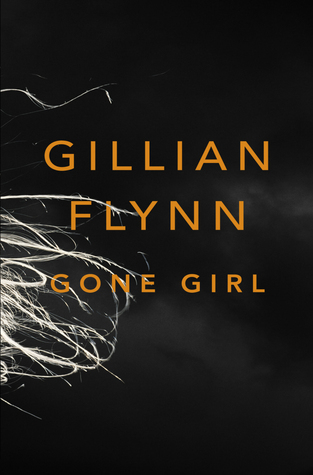Due to the recent success of Flynn’s Gone Girl, many people are now coming to her earlier offerings – Sharp Objects, and Dark Places – having already read her runaway bestseller. As a result, this book is underrated by many, as they inevitably compare it to Gone Girl and find it lacking. To some extent, this is understandable, as there is no doubt that Flynn’s writing ability has naturally progressed since she wrote her first novel, and while Sharp Objects has an outstanding emotional plot of its own, the mystery is not on par with the brilliance of Gone Girl.
It is much like reading Her Fearful Symmetry after having fallen in love with The Time Traveller’s Wife; the style is there, but the plot is lacking that ineffable quality that made Niffenegger’s debut so utterly delectable.
Unlike Her Fearful Symmetry, which genuinely is a literary travesty when compared to its predecessor, Sharp Objects holds its own and should be afforded the credit it deserves. It does not have a plot line as riveting and unpredictable as Gone Girl, yet it is not the plot for which the book should be praised, but the characters who populate a small town in Missouri named Wind Gap. The are all utterly, and without exception, the one thing that fiction writers tend to shy away from as much as possible:
Ugly.
Yet they are not ugly in a physical sense, but in a psychological sense, and ugly to such an alarming degree that there is not a single redeeming feature, in any anyone from this town. It is a town of hostile, judgemental, hypocritical, shallow mind people.
It is to this town that Camille Parker, the novel’s narrator, must return, and in Camille herself, we find the ugliest character of all. Her damage however is not entirely her own doing, but a result of circumstance, as we begin to discover as she returns to her family home. With an adored sister who died when Camille was 13, an incomprehensibly abominable mother, a step-father who never acknowledges her, and a disturbing half-sister she does not know, it is no wonder Camille is reticent about her return. Her editor however insists upon it, and so she finds herself reporting on what he believes to be the beginnings of a serial killing spree, and the killer is targeting children.
This book is not an easy read. The prose is well written, although not quite yet developed to Flynn’s later flawless standard, and the pace is good, but the subject matter quite simply makes you squirm. That is, however, the intention. This book was not written to be enjoyed. It is about some deeply serious psychology, and the ways in which mental illness affects not only the people who suffer from a condition, but those around them. Camille, we discover early on, is a cutter (hence the title). Yet Flynn is not simply portraying this aspect of her character as it has so often been seen in the past – an almost childish cry for attention, or a result of extreme depression – she has truly explored the root causes of Camille’s condition and fully demonstrated just how destructive it is to every aspect of her life. Further, Camille not only cuts, but cuts words. She has literally covered almost every inch of herself with words gouged into her own flesh, by her own hand. This happens in people who suffer from psychotic decomposition, and have a level of intelligence that focuses their attention and energy on words and writing as a means of coping.
Flynn has certainly taken this condition, as well as aspects of the crimes Camille is investigating, to the absolute extremes. At times this makes the plot somewhat less than plausible, however she has done so for a reason. The violence is not gratuitous; the abhorrent behaviour of most of the characters is not there for ‘shock value’, or even for the sake of entertainment. Even Camille is purposefully described in the ugliest way possible, but again this is not done as a deliberate attempt to make the reader dislike her.
This is a book about damage. The damage mental illness does to a person, the damage the mentally ill can do to those around them if their conditions go untreated and they go without help, and the damage that normal, everyday people do to each other in the course of living their normal, everyday lives. This is the sort of book that shows you a few unpleasant home truths, as you see yourself reflected in the occasional action and realise how it looks to other people. This is the sort of story that lets you inside the head of a person who, due their outer ‘ugliness’ you would likely never befriend, would perhaps even defriend, but once you catch a glimpse of the reasons for Camille’s ugliness, you no longer see them as ugly, but simply different. You empathise. You want other characters to empathise too and like her, help her.
Camille’s childhood shaped her whole life: her personality, her flaws, her damage, can all be traced back to events she had no control over, and actions that were not her own. She is a product of damaged people, and as such cannot be blamed for her damage. To some extent, you even grow to forgive her for actions that would otherwise be incomprehensible. She is not without fault, but she is suddenly understandable.
She is also tragic, and by the end you are rooting for her in a way you wouldn’t have thought possible. You end up outraged on her behalf at what people have done, and continue to do to her, and ultimately at the fact that the one character you thought all along was one of the good ones, turns away from her when they see the ugliness she tries so hard to hide. You come away indignant that they couldn’t see past her physical flaws, empathise with her experiences, understand her as you have come to understand her, and find a way to help her. To love her.
The plot may not be scintillating, in places it is downright predictable, the prose might not be perfect, the characters may be inordinately unpleasant, and the topic may be brutal, but the story is brave. It is a subject that many skirt and most will baulk at; Flynn however has explored it to its outer reaches and reveals not only the ugly truth of it, but also the depth to which most people remain ignorant of that truth.

